The selected quotes by Leo Tolstoy and the Doukhobor Peter Verigin clearly show the fundamental importance of activism against military and war as well as a plea for conscientious objection by the late Leo Tolstoy.

http://www.nonviolent-resistance.info/exhibitions/eng/doukhobors/pg01.htm
Mohandas K. Gandhi: Satyagraha in South Africa, 1928.

Gandhi
.......................
The Doukhobors first appeared in the 18th century. By the end of the last century or the beginning of the present, their doctrine had become so clearly defined and the number of their followers had so greatly increased, that the Government and the Church, considering this sect to be peculiarly obnoxious, started a cruel persecution.
The foundation of the Doukhobors‘ teaching consists in the believe that Spirit of God is present in the soul of man, and directs him by its word within him.
Vladimir Chertkov: Their Martyrdom in Russia (in: Alexander M. Evalenko: The Message of the Doukhobors: a statement of true facts by „Christians of the Universal Brotherhood“ and by prominent champions of their cause (University of Michigan, 1913, pp. 84-92).

Vladimir G. Chertkov and Leo N. Tolstoy
Vladimir Chertkov: Their Martyrdom in Russia (in: Alexander M. Evalenko: The Message of the Doukhobors: a statement of true facts by „Christians of the Universal Brotherhood“ and by prominent champions of their cause (University of Michigan, 1913, pp. 84-92).
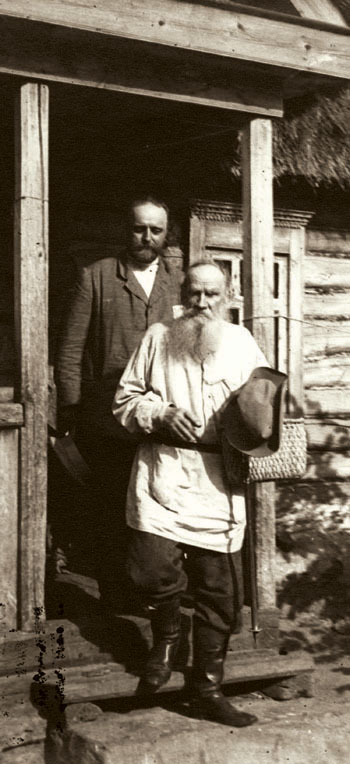
Vladimir Chertkov and
Leo Tolstoy
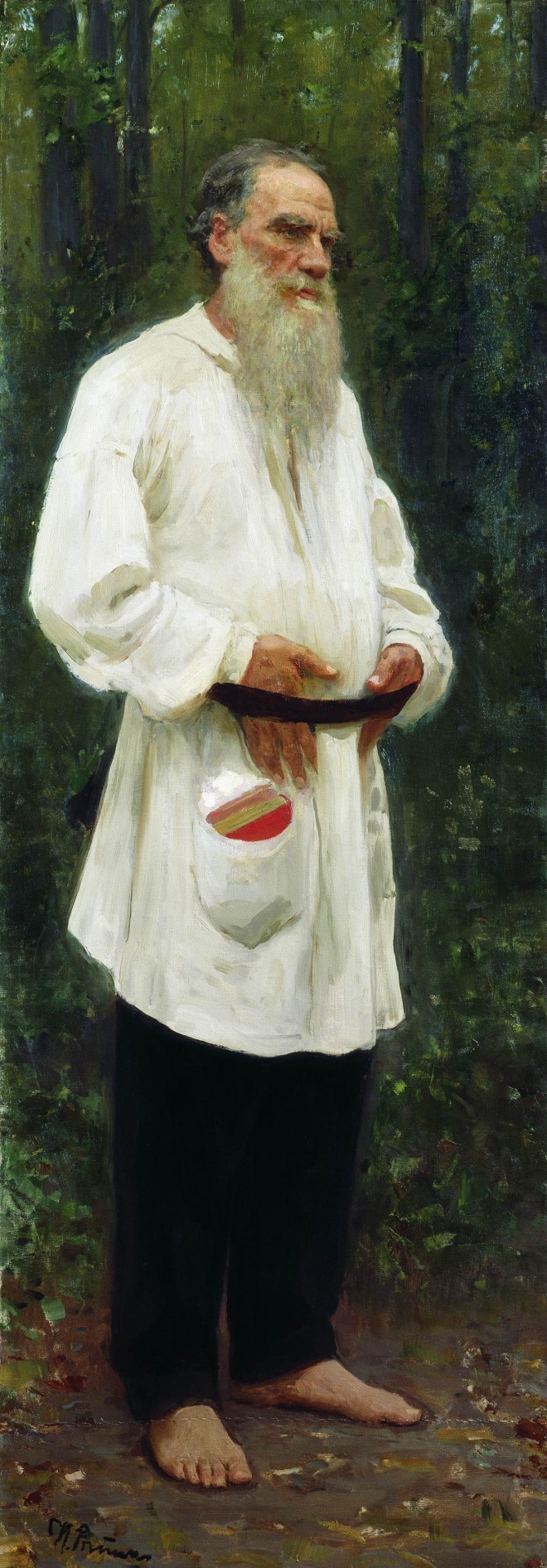
Lev Nikolayevich Tolstoy shoeless
(Ilya Repin, 1901)
Oil on canvas. 207x73cm. The State Russian Museum, St. Petersburg.
Leo Tolstoy and the Doukhobors:
Conscientious Objection
A population of twelve thousand people - „Christians of the Universal Brotherhood“, as the Doukhobors, who live in the Caucasus, call themselves - are at the present moment in the most distressing circumstances. Without entering into argument as to who is right: whether it‘d be the governments who consider that Christianity is compatible with prisons, executions, and, above all, with wars and preparations for war; or whether it‘d be the Doukhobors, who acknowledge as binding only the Christian law (which renounces the use of any force whatever and condemns murder), and who therefore refuse to serve in the army - one cannot fail to see that this controversy is very difficult to settle. No government could allow some people to shun duties which are being fulfilled by all the rest and to undermine thereby the very basis of the State. The Doukhobors, on the other hand, cannot disregard that very law, which they consider as divine, and, consequently as surpremely obligatory.
Appeal on Behalf of the Doukhobors (March 19, 1898)
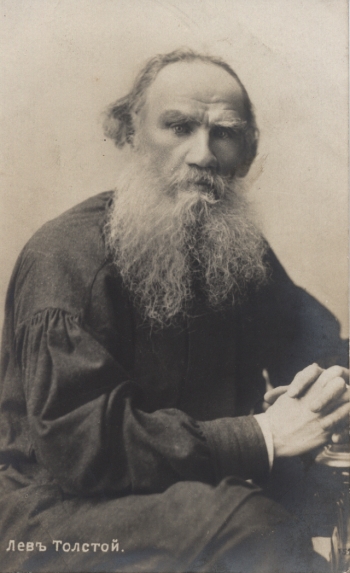
Leo Nikolayevich Tolstoy
(1828-1910)
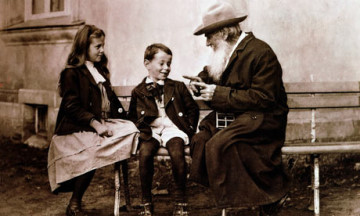
Tolstoy with his grandchildren

Leo Tolstoy‘s wife and daughters
from left to right:
Alexandra Lwowna, Tatjana Lwowna, Sophia Andrejewna, Maria Lwowna
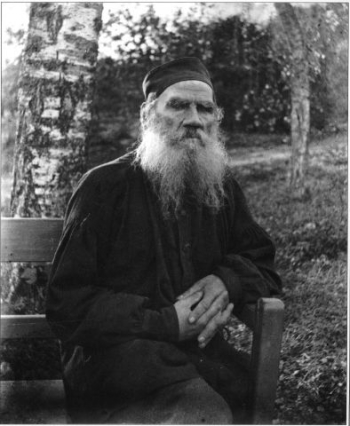
Leo Tolstoy

Leo Tolstoy (left) playing chess with Vladimir Chertkov's son
(photograph by Vladimir Chertkov, Tolstoy's friend and publisher)


Memorial to Leo Tolstoy
Doukhobor Discovery Center
(Castlegar, British Columbia, Canada)

Sergey Tolstoy and Friends of the Doukhobors accompanying them to Canada (Winnipeg, 1899)
There are people, hundreds of thousands of Quakers, Mennonites, all our Doukhobors, Molokans, and others who do not belong to any definite sect, who consider that the use of force - and consequently, military service – is inconsistent with Christianity. Consequently there are every year among us in Russia some men called upon for military service who refuse to serve on the ground of their religious convictions.
Does the government let them off then? No.
The Kingdom of God is Within You (1893)

Tolstoyans who assisted the Doukhobors in their migration to Canada in 1899. Vladimir Chertkov, who went on to publish many works about (and by) the Doukhobors, standing on the far left.
Courtesy of Larry A. Ewashen
(Doukhobor Discovery Center, Castlegar,
British Columbia, Canada)
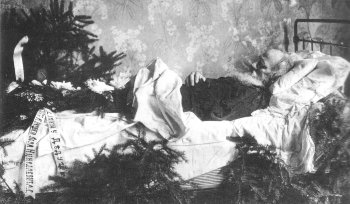
Leo Tolstoy's deathbed
(Station master's home at Astapovo)

Sergej Tolstoy, son of Leo Tolstoy, accompanied and supported the Doukhobors on their forced emigration to Canada in 1898 and after.

Historical Doukhobor Burning of Arms In the Caucasus (1895)
S0urce: http://www.nonviolent-resistance.info/exhibitions/eng/doukhobors/concept.htmhttp://www.nonviolent-resistance.info/exhibitions/eng/doukhobors/concept.htm

No comments:
Post a Comment